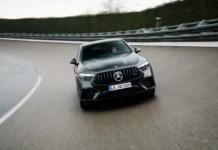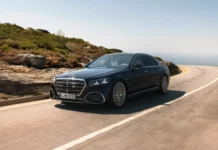
According to U.S. and European diplomats, Trump wants to ban the import of German luxury cars to the American market.
“When you walk down Fifth Avenue, everyone has a Mercedes-Benz in front of their house.” Back in a January 2017 interview, President Donald Trump made that exact statement when speaking about the reciprocity of American cars on German roads. “How many Chevrolets do you see in Germany? Not too many, maybe none at all, you do not see anything over there, it’s a one-way street.”

Last week, we reported that Trump instructed the Commerce department to determine how feasible imposing a 25 percent import duty would be. According to reports at the time, the President was considering the tariff in the interest of “national security”. Currently, U.S. tariffs on cars imported from the European Union stands at 3 percent. The substantially higher tariff would cost German carmakers billions and depress the German Gross Domestic Product (GDP) by 0.16 percent – or around five billion Euros – according to the Munich-based Ifo Center for Foreign Trade. As of 2017, Germany on its own had the fifth-largest economy in the world, with a GDP of $3.65 trillion.
What a total ban would look like
Apart from the billions of dollars in damage to Germany’s economy, their government has warned that banning luxury cars to the U.S. could result in a damaging trade war. German automakers control 90 percent of the luxury car market, thanks to brands like Mercedes-Benz, Audi, BMW and Porsche. A huge tariff, on its own, could lead manufacturers to pull out of the U.S. market, as their cars would get too expensive. According to Automotive News, Germany’s automotive industry association VDS says the country exported 657,000 cars to North America last year. Including components, total exports were around $36.4 billion in 2016.
However, this ban goes further than just making imports massively expensive. A total ban would likely impact the U.S. economy, as German manufacturers have major assembly plants in the United States. BMW, for instance, has its assembly plant in South Carolina. Mercedes-Benz has its own plant in Alabama. Popular German luxury models like the BMW X5 and Mercedes-Benz GLE are built right here in the U.S. Audi and Porsche, on the other hand, could be most vulnerable as they don’t have any manufacturing in the U.S.
It’s unclear at this point whether the ban, or even the higher tariff, will happen in the near future. We’ll provide more information as it becomes available. Stay tuned to TFLcar.com for more updates!


























